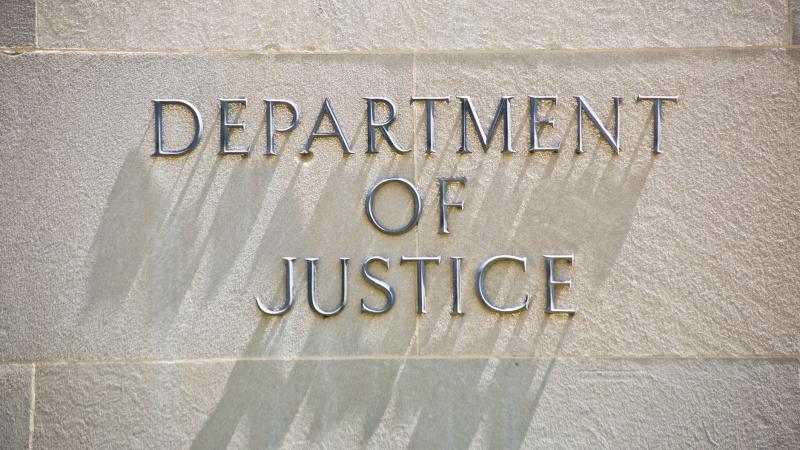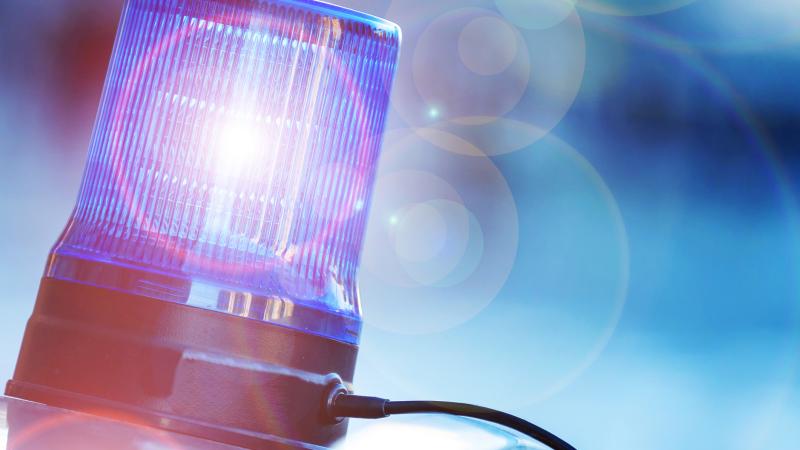Halligan pushes back after judge asks if she is Trump ‘puppet’ in Comey prosecution
The DOJ insists that Comey has been charged because he broke the law, not because Trump told them to charge him.
Interim U.S. Attorney Lindsey Halligan is pushing back after the federal judge presiding over the case against former FBI Director James Comey asked whether she was acting as a “puppet” of President Donald Trump when she pursued criminal charges against Comey for allegedly lying to and obstructing Congress.
Comey’s legal team is seeking to get the charges against him thrown out in the case presided over by Judge Michael Nachmanoff, who was nominated to the bench by then-President Joe Biden. Comey's lawyers argus that the prosecution is selective and vindictive, claiming that Halligan charged their client because Trump directed her too – a contention the Justice Department denies.
“Personal attacks – like Judge Nachmanoff referring to me as a ‘puppet’ — don’t change the facts or the law,” Halligan said Thursday in a rare public statement to the New York Post.
DOJ spokesman Chad Gilmartin tweeted out the article on X, saying, "US Attorney Lindsey Halligan fires back at James Comey judge who claimed she’s a ‘puppet’."
Mike Davis, the founder of the conservative Article III Project, tweeted, "Translation: A leftwing DC-area Biden judge doesn’t have the emotional intelligence to even pretend to be fair."
Nachmanoff had asked the defense team on Wednesday, “So your view is that Ms. Halligan is a stalking horse or a puppet, for want of a better word, doing the president’s bidding?”
One of Comey’s lawyers, Michael Dreeben, a former member of special counsel Robert Mueller’s Trump-Russia investigation, replied: “Well, I don’t want to use language about Ms. Halligan that suggests anything other than she did what she was told to do.”
He continued: “The president of the United States has the authority to direct prosecutions. She worked in the White House. She was aware of the president’s directive. She didn’t have prosecutorial experience, but she took on the job to come to the U.S. attorney’s office and carry out the president’s directive.”
The DOJ pushed back on the “puppet” attack both in court and in the press.
“Ms. Halligan was not directed to seek this prosecution,” Assistant U.S. Attorney N. Tyler retorted in the Alexandria federal courtroom on Wednesday. “It was her decision and her decision only. Ms. Halligan was not a puppet. … She made independent decisions.”
Halligan suggested to the media that the “puppet” language from the judge was inappropriate.
“The Judicial Canons require judges to be ‘patient, dignified, respectful, and courteous to litigants, jurors, witnesses, lawyers, and others with whom the judge deals in an official capacity’ … and to ‘act at all times in a manner that promotes public confidence in the integrity and impartiality of the judiciary.’ … My focus remains on the record and the law, and I will continue to fulfill my responsibilities with professionalism,” Halligan told the New York Post.
Halligan is defending her handling of the grand jury proceedings, which resulted in two criminal charges against Comey, in the wake of critiques from a magistrate judge on Monday and probing questions Wednesday from the federal judge presiding over the case.
The federal prosecutor was selected by Trump in September to lead the U.S. attorney’s office in the Eastern District of Virginia.
The DOJ’s two-count indictment, approved by a federal grand jury in northern Virginia in late September, stemmed from allegations that Comey misled the Senate during his testimony in late September 2020, when he reiterated his May 2017 denial that he had never authorized a leak of information to the media about the Trump-Russia investigation or Hillary Clinton-related investigations, when the DOJ says he in fact authorized his friend, confidante, and special government employee Dan Richman to leak to the media about the FBI’s Clinton investigation.
The indictment also alleged that Comey had obstructed Congress by lying to the Senate.
The foreperson for the grand jury had told the judge in September that, in addition to approving the two charges, “grand jurors did not concur in finding an indictment in this case” related to a third count – the DOJ’s allegation that Comey had also lied when he claimed before the Senate in September 2020 that he did not remember the 2016 CIA referral about the Clinton Plan intelligence seeking to tie Trump to Russia. The DOJ says that allegation remains part of the obstruction charge against Comey.
Dreeben had argued in court on Wednesday that “the president of the United States has caused the executive branch to prosecute a perceived enemy.” Dreeben pointed to a September 20 social media post by Trump, just a few days before Halligan secured a two-count indictment against Comey.
Trump had posted on Truth Social a message apparently aimed at Attorney General Pam Bondi.
“Pam: I have reviewed over 30 statements and posts saying that, essentially, ‘same old story as last time, all talk, no action. Nothing is being done. What about Comey, Adam ‘Shifty’ Schiff, Leticia [sic]??? They’re all guilty as hell, but nothing is going to be done.’ Then we almost put in a Democrat supported U.S. Attorney, in Virginia, with a really bad Republican past. A Woke RINO, who was never going to do his job,” Trump said on Truth Social in September. “That’s why two of the worst Dem Senators PUSHED him so hard. He even lied to the media and said he quit, and that we had no case. No, I fired him, and there is a GREAT CASE, and many lawyers, and legal pundits, say so. Lindsey Halligan is a really good lawyer, and likes you, a lot. We can’t delay any longer, it’s killing our reputation and credibility. They impeached me twice, and indicted me (5 times!), OVER NOTHING. JUSTICE MUST BE SERVED, NOW!!!”
Dreeben said Wednesday that “if that’s not a direction to prosecute, I’m not really sure what is.”
Lemons on Wednesday argued that Comey’s legal team was making improper “inferential leaps” when they claimed that the prosecution against their client was selective and vindictive.
The federal prosecutor also argued there was “no proof” that Halligan took Trump’s social media post “as a charge” to go after Comey, insisting that Comey “was not indicted at the direction of the president of the United States.”
Comey’s lawyers filed a motion to dismiss in late October, asserting that “the President – the head of the Executive Branch and Ms. Halligan’s ultimate supervisor – instigated a prosecution that would otherwise not have been brought to punish Mr. Comey for his free speech and for who he is.”
“President Trump ordered the Department of Justice to prosecute Mr. Comey because of personal spite and because Mr. Comey has frequently criticized the President for his conduct in office,” Comey’s legal team had told the court.
But the DOJ pushed back against this in their own court filings in early November.
“It is hardly surprising that the Executive would prioritize the prosecution of high-level agency officials who have lied to Congressional investigators about their official actions,” the prosecutors said.
The DOJ added: “The defendant’s extraordinary conduct — and the level of public trust he betrayed by lying to Congress about his official actions — ‘are manifestly the reasons for his prosecution.’ The Executive cannot be expected to ignore agency heads lying about official actions simply because they later become outspoken critics.”
Comey, fired as FBI director in 2017 by President Trump, oversaw the politicized investigation into Clinton's use of a private email server to send classified information and the Trump-Russia collusion inquiry.
The charges against him were brought by Halligan, the former personal Donald Trump lawyer and White House aide, who was sworn-in in September shortly before obtaining the indictments against Comey.
The Justice Department also argued Thursday that the transcript from the September 25 proceedings in front of Magistrate Judge Vaala showed that the two-count indictment against Comey was properly approved by the grand jury.
The DOJ released a transcript from its effort in September to indict Comey that appeared to show the foreperson said the grand jury voted on and agreed to a two-count indictment against Comey for allegedly lying to and obstructing Congress.
“The complete record eliminates any doubt: The foreperson confirmed the vote. The Court acknowledged the vote. The Court docketed the two-count true bill as the operative indictment. Only Count One lacked concurrence; Counts Two and Three were true-billed by at least twelve jurors,” the DOJ said in its court filing. “Accordingly, any assertion that the grand jury ‘never voted on the two-count indictment’ is contradicted by the official transcript.”















